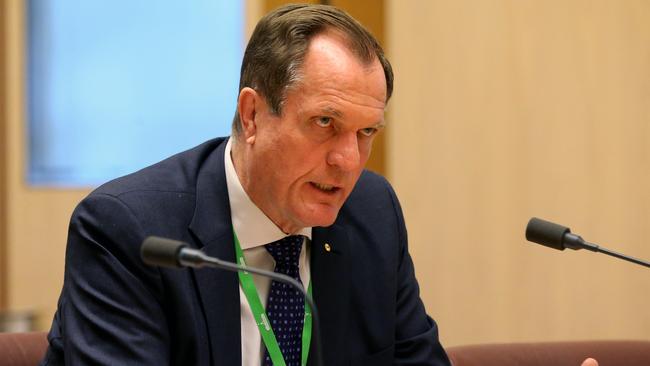Clarity on family trusts is a win for taxpayers but a setback for the tax office

Last April I discussed how the ATO was moving to tighten rules around trusts, but the proposal was rejected by the courts.
This was known as the Guardian case (Guardian AIT Pty Ltd ATF Australian Investment Trust v Commissioner of Taxation [2021]), where the most recent step had been the ATO launching an appeal against the earlier Federal Court decision to the full bench of the Federal Court.
This appeal had both financial advisers and investors worried as the ATO was trying to take a far wider interpretative approach to what is called the ‘‘s100A rule’’ by including transactions that many may think are normal family or commercial dealings.
Now the full bench of the Federal Court has handed down its decision dismissing the tax commissioner’s appeal.
What is s100A? Put simply, it deals with the issue of “anti-avoidance” which targets arrangements where a beneficiary is presently entitled to trust income, but the economic benefit is received by another person other than that beneficiary, with the purpose of reducing a person’s tax liability.

If the ATO had ultimately won, it would have had a significant impact on the taxation treatment of income distributions from trusts.
In reality, the ATO effectively has been ignoring the original decision brought down by the Federal Court and has provided guidance and a new ruling despite the appeal being heard.
Many family properties, farms and other family assets are often owned within a trust structure for asset protection.
At the time, big four accountancy group KPMG pointed to a number of specific concerns on family trusts. These included:
THE rear-view lens – the ATO is looking at this matter retrospectively and could go back to 2015.
TRUSTS not ‘‘ordinary’’ – effectively, the ATO view is that a family dealing in a trust may be common, but it is not ordinary.
ANTI-AVOIDANCE rules – the ATO would argue a farm, for instance, in a trust is ordinary and not controversial and there is no need for anti-avoidance rules in these cases.
KPMG Enterprise tax partner Clive Bird says: “This is an important judgment for the large numbers of business and investment trusts in Australia as the ATO has been seeking to take a much broader view of this anti-avoidance rule (section 100A), through its 2022 Tax Ruling and Practical Compliance Guideline.
“The Federal Court dismissed the commissioner’s section 100A appeal in the Guardian case, confirming the earlier court ruling that the trust reimbursement agreement rules did not apply.
“This would otherwise have caused the Guardian trust distributions to be taxed in the trust at the top marginal tax rate.
“This a win for taxpayers and a setback for the ATO, and will impact its approach to tax planning and family distribution arrangements through common trust structures.”
Hall & Wilcox tax partner Andrew O’Bryan points out that tax advisers, the ATO and the taxpayer have been waiting 12 years for the government of the day to provide policy direction – which there has been no appetite for and therefore the ATO had to seek guidance from the courts.
So what does all this mean? The court ruling with respect to the exclusion of agreements on the basis of ordinary family or commercial dealings should be highly valuable to any taxpayer who ever has to defend a so called “section 100A determination” – where the tax office believes the trust is not abiding by the rules.
The ATO will need to rework the guidance it has previously issued, to take into account the appeal loss.
As O’Bryan also says: “I have been telling people for years that using a trust as a vehicle is complicated.
“It will be interesting to see how far the ATO takes these decisions when considering the hundreds of thousands of discretionary trustee distribution decisions that are made around 30 June each year.
“Often these decisions are made with a high degree of tax motivation.”
Will Hamilton is the managing partner of Hamilton Wealth Partners, a Melbourne wealth manager
will.hamilton@hamiltonwealth.com.au



Family trusts are a keystone in wealth management planning. Many investors have been concerned about what exactly the Australian Taxation Office has been trying to achieve with a range of legal manoeuvres. But a recent court case finally offers some clarity,